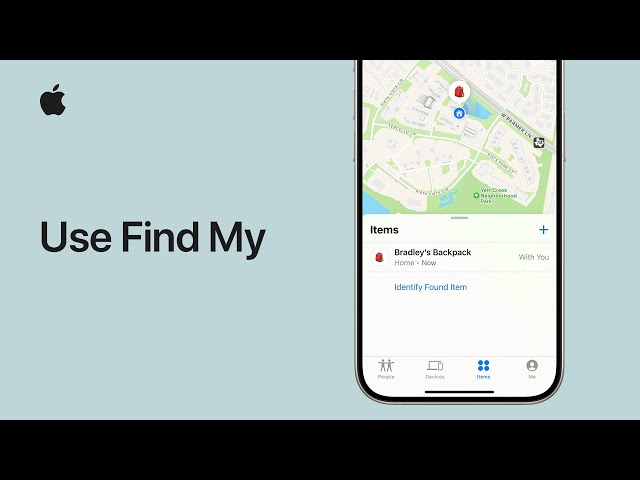A recent Google security update is causing significant connectivity issues for Pixel device owners, with reports flooding in of widespread problems with Wi-Fi and Bluetooth connections. The December update, intended to enhance device security and performance, appears to have inadvertently triggered a wave of frustrating glitches for many users. Problems range from intermittent connection drops to a complete inability to connect to Wi-Fi or pair with Bluetooth devices. Online forums, including Reddit and Google’s own support pages, are filled with complaints from frustrated Pixel owners struggling to maintain stable connections since installing the update.
This issue highlights the delicate balance between security updates and software stability. While these updates are crucial for patching vulnerabilities and protecting users from cyber threats, they can sometimes introduce unforeseen problems. In this case, the December update seems to have disrupted the core functionality of Wi-Fi and Bluetooth connectivity for a significant number of Pixel users. Google has acknowledged the issue and is reportedly working on a fix, but the lack of a clear timeline for resolution has left many users feeling frustrated and disconnected.
The December Update Debacle: A Closer Look
The December security update, rolled out in the first week of the month, was expected to be a routine patch with security enhancements and bug fixes. However, shortly after its release, Pixel users began reporting a range of connectivity issues:
- Wi-Fi woes: Users are experiencing frequent Wi-Fi disconnections, slow speeds, and an inability to connect to networks altogether. Some report that their Wi-Fi toggles inexplicably turn off, requiring manual intervention to re-enable them.
- Bluetooth blues: Bluetooth connectivity is similarly affected, with users struggling to pair with devices like headphones, speakers, and cars. Some report intermittent connection drops, while others find that their Pixel devices fail to detect Bluetooth devices entirely.
These issues appear to be affecting a wide range of Pixel models, from older devices like the Pixel 4a to the latest Pixel 7 series. The common thread among those affected is the installation of the December security update, strongly suggesting a direct correlation.
User Frustration Mounts as Google Investigates
The impact of these connectivity issues is significant, disrupting daily activities that rely on seamless internet and Bluetooth connections. Imagine this:
- You’re in the middle of an important video call, and your Wi-Fi suddenly drops, interrupting your meeting and potentially damaging your professional image.
- You’re trying to unwind with your favorite music on your Bluetooth headphones, but the constant connection drops ruin your listening experience.
- You’re relying on your phone’s GPS navigation in an unfamiliar area, and the unstable connection leads you astray.
These are just a few examples of how the connectivity problems triggered by the December update are impacting Pixel users’ lives. The lack of a reliable solution has led to growing frustration within the Pixel community, with many users expressing their disappointment on online platforms:
- “This update has completely crippled my Pixel 6 Pro. My Wi-Fi constantly disconnects, and I can’t even use my Bluetooth headphones anymore. It’s incredibly frustrating!” – A Reddit user on r/GooglePixel
- “I’ve tried everything – restarting my phone, resetting network settings, even factory resetting – but nothing seems to fix the Wi-Fi issue. Google needs to address this immediately.” – A comment on Google’s support forum
The widespread nature of these complaints has forced Google to acknowledge the problem. In a statement on their support page, Google confirmed that they are “aware of the reports and are actively investigating the issue.” However, they have not provided a specific timeline for when a fix might be available, leaving users in a state of uncertainty.
Potential Causes and Temporary Workarounds
While Google hasn’t pinpointed the exact cause of the connectivity issues, several theories are circulating among tech experts and users:
- Software bug: The most likely culprit is a software bug introduced in the December update that interferes with the Wi-Fi and Bluetooth drivers or network stack. This could be due to an incompatibility with certain hardware configurations or a coding error.
- Modem issues: Some speculate that the update might be causing problems with the modem firmware, affecting the device’s ability to connect to networks.
- Background app interference: Certain background apps or services might be conflicting with the updated network settings, leading to connectivity problems.
In the absence of an official fix from Google, users have been experimenting with various workarounds with mixed success:
- Restarting the device: This simple solution can sometimes temporarily resolve connectivity glitches.
- Toggling Airplane mode: Turning Airplane mode on and off can reset network connections and potentially resolve minor issues.
- Resetting network settings: This involves clearing all saved network configurations and starting fresh, which can sometimes resolve more persistent problems.
- Rolling back to the previous update: This is a more drastic measure that involves manually installing an older version of the Android operating system. However, it’s not a straightforward process and may not be feasible for all users.
It’s important to note that these workarounds are not guaranteed solutions and might only provide temporary relief. The only definitive fix will likely come from Google in the form of a software patch.
The connectivity issues stemming from the December update highlight the critical importance of rigorous testing before releasing software updates. While it’s impossible to catch every potential bug, thorough testing across a wide range of devices and scenarios can significantly reduce the risk of widespread problems.
Furthermore, Google needs to be more responsive to user feedback and prioritize addressing critical issues that impact core device functionality. The delay in providing a concrete solution for the connectivity problems has understandably frustrated many Pixel users.
This incident serves as a reminder that even tech giants like Google are not immune to software glitches. It underscores the need for continuous improvement in software development processes, including more robust testing, faster response times to user-reported issues, and clearer communication about ongoing problems and their expected resolution timelines.
Looking Ahead: What Can Pixel Users Expect?
As of now, Pixel users affected by the connectivity issues can only wait for Google to release a patch that addresses the underlying problem. It’s crucial for Google to prioritize this issue and provide a timely solution to restore the affected users’ faith in their devices and the software update process.
In the meantime, users can try the temporary workarounds mentioned earlier and stay informed about any updates from Google regarding the issue. Monitoring Google’s support forums and official communication channels can provide valuable information and potential solutions.
This incident also raises questions about the future of software updates and the balance between security and stability. As devices become more complex and interconnected, the potential for unforeseen consequences from software updates increases. It’s crucial for Google and other tech companies to invest in more robust testing methodologies and prioritize user feedback to minimize the risk of such disruptions in the future.






















